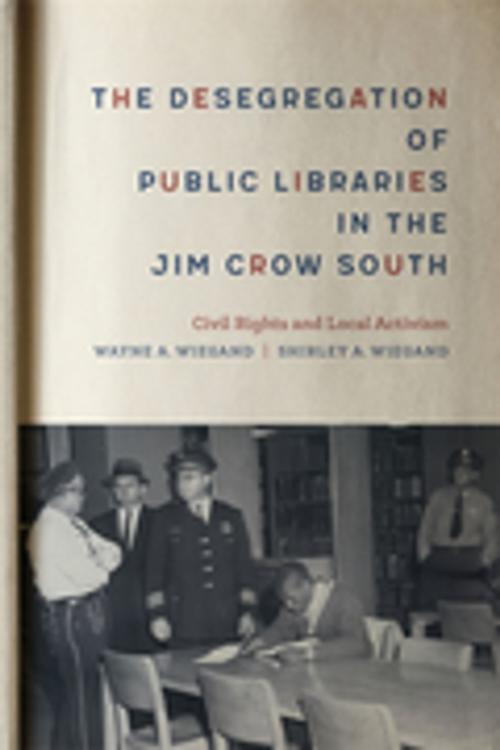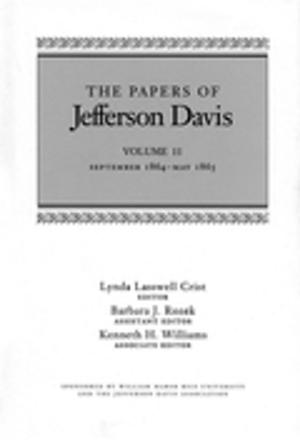The Desegregation of Public Libraries in the Jim Crow South
Civil Rights and Local Activism
Nonfiction, Social & Cultural Studies, Political Science, Politics, Civil Rights, Social Science, Cultural Studies, African-American Studies, History, Americas, United States, 20th Century| Author: | Shirley A. Wiegand, Wayne A. Wiegand | ISBN: | 9780807168691 |
| Publisher: | LSU Press | Publication: | April 14, 2018 |
| Imprint: | LSU Press | Language: | English |
| Author: | Shirley A. Wiegand, Wayne A. Wiegand |
| ISBN: | 9780807168691 |
| Publisher: | LSU Press |
| Publication: | April 14, 2018 |
| Imprint: | LSU Press |
| Language: | English |
In The Desegregation of Public Libraries in the Jim Crow South, Wayne A. and Shirley A. Wiegand tell the comprehensive story of the integration of southern public libraries. As in other efforts to integrate civic institutions in the 1950s and 1960s, the determination of local activists won the battle against segregation in libraries. In particular, the willingness of young black community members to take part in organized protests and direct actions ensured that local libraries would become genuinely free to all citizens.
The Wiegands trace the struggle for equal access to the years before the Supreme Court’s Brown v. Board of Education decision, when black activists in the South focused their efforts on equalizing accommodations, rather than on the more daunting—and dangerous—task of undoing segregation. After the ruling, momentum for vigorously pursuing equality grew, and black organizations shifted to more direct challenges to the system, including public library sit-ins and lawsuits against library systems. Although local groups often took direction from larger civil rights organizations, the energy, courage, and determination of younger black community members ensured the eventual desegregation of Jim Crow public libraries. The Wiegands examine the library desegregation movement in several southern cities and states, revealing the ways that individual communities negotiated—mostly peacefully, sometimes violently—the integration of local public libraries.
This study adds a new chapter to the history of civil rights activism in the mid-twentieth century and celebrates the resolve of community activists as it weaves the account of racial discrimination in public libraries through the national narrative of the civil rights movement.
In The Desegregation of Public Libraries in the Jim Crow South, Wayne A. and Shirley A. Wiegand tell the comprehensive story of the integration of southern public libraries. As in other efforts to integrate civic institutions in the 1950s and 1960s, the determination of local activists won the battle against segregation in libraries. In particular, the willingness of young black community members to take part in organized protests and direct actions ensured that local libraries would become genuinely free to all citizens.
The Wiegands trace the struggle for equal access to the years before the Supreme Court’s Brown v. Board of Education decision, when black activists in the South focused their efforts on equalizing accommodations, rather than on the more daunting—and dangerous—task of undoing segregation. After the ruling, momentum for vigorously pursuing equality grew, and black organizations shifted to more direct challenges to the system, including public library sit-ins and lawsuits against library systems. Although local groups often took direction from larger civil rights organizations, the energy, courage, and determination of younger black community members ensured the eventual desegregation of Jim Crow public libraries. The Wiegands examine the library desegregation movement in several southern cities and states, revealing the ways that individual communities negotiated—mostly peacefully, sometimes violently—the integration of local public libraries.
This study adds a new chapter to the history of civil rights activism in the mid-twentieth century and celebrates the resolve of community activists as it weaves the account of racial discrimination in public libraries through the national narrative of the civil rights movement.















